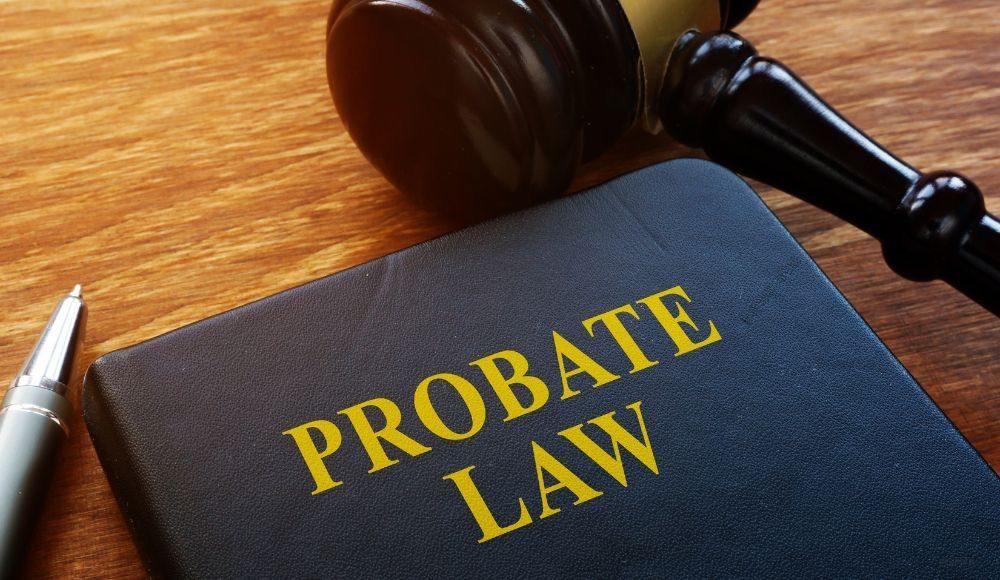Benefits of Mediation in Civil Litigation

One of the goals of the Civil Litigation Attorneys at Bingaman Hess is to resolve our client's legal disputes as efficiently as possible. Often, legal disputes can be settled out of court through alternative dispute methods such as mediation. This can save our clients both time and money.
What is Mediation?
"Mediation is an alternative dispute resolution method with a neutral person helping the parties find a solution to their dispute," Cornell Law School explains. "The neutral party is known as a mediator. Mediation may also be called case evaluation or facilitated negotiation."
The mediator helps the parties involved have constructive conversations, ensures everyone has an opportunity to speak, and helps explore and negotiate a resolution. Mediators do not give legal advice or make decisions for the parties involved.
Mediation can be requested before or after a lawsuit is filed, and it does not mean giving up the right to go to court if the parties aren't satisfied with the mediation outcome.
Mediation is voluntary, and both parties must mutually agree upon all decisions. The resolutions become legally binding when both parties agree to a written settlement or mediation agreement. If the dispute is resolved, the plaintiff can dismiss the case if a lawsuit has been filed. If the dispute is not resolved, it can be brought to court.
What are the Benefits of Mediation?
- Cost Effective
Mediation is typically less expensive than litigation because it involves lower attorney fees, little to no court costs, and minimal or no administrative fees.
- Quicker Resolution
Litigation can take months to years to come to a resolution. Meanwhile, mediation typically takes weeks to months to come to a resolution.
- Flexibility
In courtroom litigation, options for the outcome can be limited to an all-or-nothing scenario. Typically, one party wins, and one loses. In mediation, the resolution can be tailored to a specific situation.
- Comprehensive and Customized Results
Mediation can make the resolution more comprehensive and customized than in a court case. For example, the court cannot require an apology, but mediation can, and sometimes, that apology can make all the difference.
- More Control
In litigation, a judge or jury decides the final outcome. With mediation, the parties involved work together to reach a mutually agreeable resolution, giving all parties more control over the outcome.
- Confidential
All litigation proceedings in a courtroom are public record. In contrast, all discussions during mediation are between the mediator and the parties involved.
- Higher Compliance Rates
Because all parties involved in mediation have a say in the final resolution of a dispute and need to agree to the resolution, the compliance rate for mediation resolutions is higher than litigation. One study found that in mediated cases, 70.6% of defendants paid in full, 16.5% paid in part, and 12.8% did not pay. In cases decided by a judge, only 33.8% of defendants paid in full, 21.1% paid in part, and 45.1 % did not pay at all.
- Higher Satisfaction With Outcomes
Because all parties in mediation actively participate in the process, have a chance to speak their piece, and feel their voices have been heard and respected, more people are satisfied with the outcome than they are with court-ordered resolutions.
- Less Stressful
Mediation is less formal and complex than traditional courtroom litigation, creating a more relaxed and less stressful environment. The parties deal directly with each other in an office, not a courtroom in front of a judge or jury, allowing them to focus on the issues rather than the legal technicalities.
- Preservation of Relationship
Disputes that involve family members or long-standing business relationships can be particularly sensitive. Because mediation is a more collaborative process than litigation, parties have a better chance of understanding each other's perspectives, gaining mutual respect, and preserving their relationship.
How Can Bingaman Hess Civil Litigation Attorneys Help?
Whether we are representing a plaintiff or defendant, our litigation lawyers thoroughly analyze the situation, provide knowledgeable guidance, and offer all available options to help clients decide whether it is in their best interest to take their case to court.
Our negotiation skills and experience often allow us to resolve disputes out of court through effective mediation and arbitration, which saves our clients time and money.
If you have a civil litigation issue, call us at 610.374.8377 or find us online.
News & Information

Contact Us Today
Sound legal advice is based on years of training, hard work, and passion, as well as familiarity with legislation and precedent and sound consideration. You’ll find all that and more at Bingaman Hess.
We will get back to you as soon as possible
Oops, there was an error sending your message.
Please try again later!
Wyomissing
Kutztown
Harrisburg
610.374.8377
2601 N. Front Street
Suite 206
Harrisburg, PA 17110
Media
Wilkes-Barre
610.374.8377
12-14 West Northampton Street,
Suite 7
Wilkes-Barre, PA 18701
We have been providing exceptional service, advice, and representation to clients for more than 60 years.
Serving Berks, Lehigh, Northampton, Bucks, Montgomery, Philadelphia, Chester, Delaware, Lancaster, Lebanon, Dauphin, Schuylkill, York, Carbon, Luzerne, Monroe, Columbia and Northumberland counties
The Bingaman Hess web site is intended to provide information (not advice) about the firm, its lawyers and new legal developments. Visitors to this web site should not act upon this information without consulting with legal counsel. Transmission and receipt of materials provided by Bingaman Hess's web site is not intended to and does not create an attorney-client relationship. Please be further advised that the act of sending e-mail to an attorney at Bingaman Hess will not create an attorney-client relationship. If you are not currently a client of Bingaman Hess your e-mail will not be privileged and may be disclosed to other persons. This web site is not intended to be advertising and Bingaman Hess does not wish to represent anyone desiring representation based upon viewing this web site in a state where this web site fails to comply with all laws and ethical rules of that state. This web site is meant to be informational only, consistent with our profession's obligation to help inform not only our clients but to cultivate knowledge of the law in the public in general.
Bingaman Hess Attorneys at Law, All Rights Reserved









